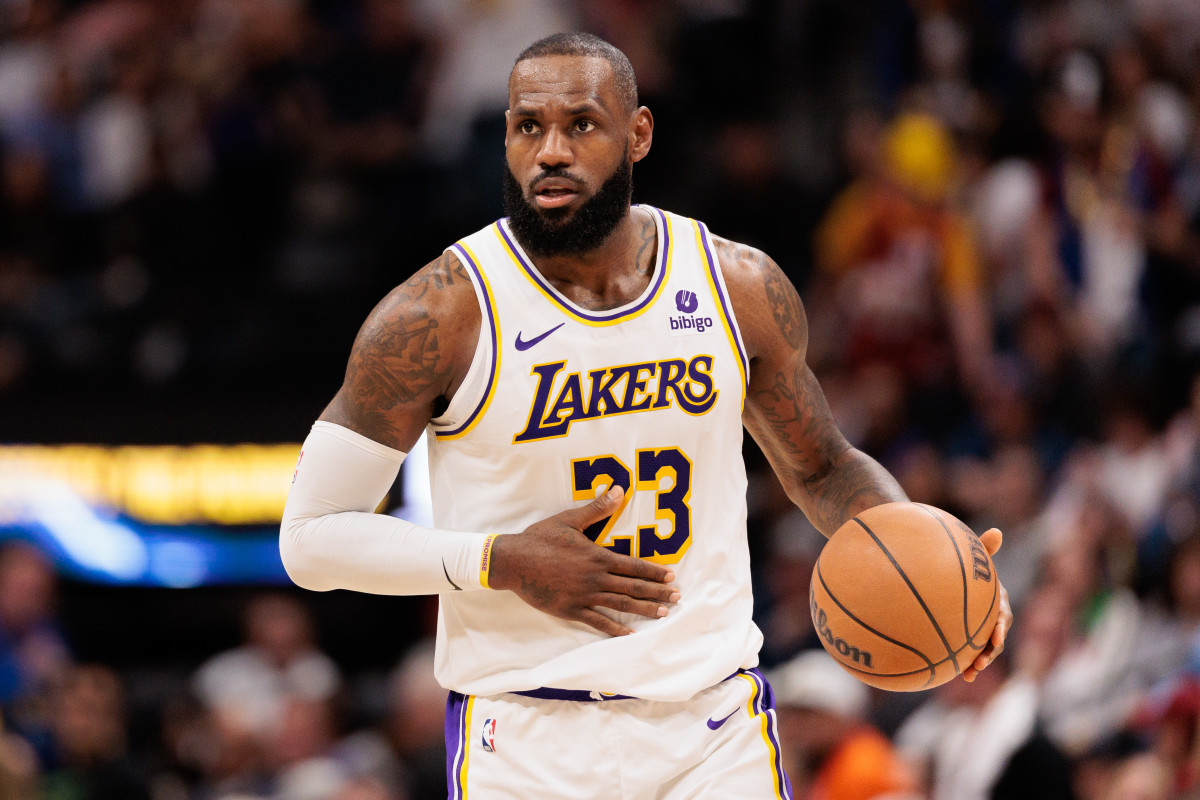This season, Tyrese Maxey made yet another breakthrough. He reached career-highs in every category and flourished in a bigger role, whether he was leading the offense in Joel Embiid’s absence or working alongside him, on route to winning the NBA’s Most Improved Player award. Maxey carried that momentum into the postseason and has garnered a lot of attention, justifiably so.
/cdn.vox-cdn.com/uploads/chorus_image/image/73337881/2150286423.0.jpg)
Maxey received a lot of praise on the most recent episode of Mind the Game, the fantastic podcast hosted by LeBron James and JJ Redick that is full of insightful analysis and fantastic Xs and Os.
LeBron was eager to draw attention to Maxey’s intensity and perseverance in particular.
“The motherf***** don’t get tired,” LeBron said. “He don’t get tired. I mean, I watched that game last night, I think he played 50 minutes. I think maybe, you know, hurt his elbow at one point, turned his ankle at one point, hit the ground numerous times, try to go in the lane and dunk on two guys, get it blocked, get back up… You can’t get ahold of him, ‘cause he don’t get tired. You know, he just don’t get tired.”
Redick correctly emphasized Maxey’s exceptional top speed as well as how well he modulates speed. It’s what enables him to surprise opponents, drive them astray, and eventually overtake them when they are unable to keep up with his lightning-fast acceleration, whether in half-court situations or during transitions when he picks up the pace.

“He is indeed fast,” Redick remarked. But he’s also a really good speed changer. I would characterize him as unapproachable, which is why I believe he is so good in the postseason. What I mean by that, do you understand? He plays with the bounce of his steps all the time; sometimes it’s slower, other times it’s faster, and he activates the jets when he wants to.
Watching the entire episode on YouTube on this year’s playoffs, as well as the earlier ones, is highly recommended.
Against a strong Knicks team that had the ninth-best defense in the NBA, Maxey, who is only 23 years old and coming off his first All-Star season, averaged 29.8 points, 5.2 rebounds, and 6.8 assists per game with 47.8/40/89.3 shooting splits during the playoffs.

Oh, and we also can’t review his series without mentioning his incredible 46-point comeback in Game 5 that saved the Sixers’ season.
This season, he made improvements in almost every area of his game: playmaking, more frequent three-point shooting, finishing through contact and efficiency at the rim (he made a career-high 66.1 percent of his attempts within three feet), free throw percentage (though he still ought to have been called for more in the postseason), defense, mid-range play, and creating space. This season, he actually made the All-NBA team.
Maxey will undoubtedly keep up his relentless efforts to improve all facets of his game throughout the offseason and into 2024–2025. All he does is keep getting better, one percent better every day, to be exact.
It’s safe to say that LeBron deserves all the praise he gave. It’s always good to be acknowledged as the second-best NBA player ever, at the very least.